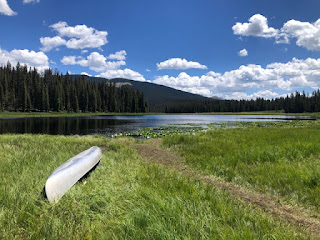When I asked the workshop participants last Wednesday evening what are some words that come to mind when they hear the word science, they came up with words like observation and questions. With the word poetry, they associated emotions and meditation. Some words were listed under both poetry and science, such as truth and mystery.
In some ways, science and poetry draw from the same well of experience and place and curiosity. A deep and focused level of observation is involved in noticing the world around the writer, and in manifesting sensory detail of this world in a poem. What can science bring to a poem? I think it can bring a grounded acknowledgement of the connectedness between ourselves and the natural world. What can a poem bring to science? A poem creates another medium of experience that can link the emotions with the how and the why.
Two excerpts from Zayani Bhatt, The NewStatesman:
“Adding an idea from one place to an idea from somewhere else to make something that perfectly sums up the thing itself,” says Dodd. “It’s about seeing patterns in the world and translating them into something others can engage with. The best scientist and poets can do that.
“Both [poetry and science] too depend on metaphor, as the manner by which thought is explained to the lay reader and as a way of confirmation: if something like this can exist in the world, then surely this itself can too? …much of Charles Darwin’s thought was shaped by poetry - he travelled to South America to carry out research on what was to become the Origin of Species, with the poet John Milton.” – Zayani Bhatt
Consider how this poem by Thomas Lux transparently describes his thought process. He does not write from the full knowledge of an ichthyologist or a biologist. He brings into the poem his own understanding of where he stands in relation to the environment and world of the electric fish, and through his exploration of the consequences of this interesting detail of the fishes' lives, he reveals even more about the life and experience of the observer, the speaker in the poem. He brings into the poem meaningful elements of the speaker. He also juxtaposes the scientific language with the personal.
Ode to the Electric Fish that Eat Only the Tails of Other Electric Fish,
By Thomas Lux
which regenerate their tails
and also eat only the tails of other electric eels,
presumably smaller, who, in turn, eat ...
Without consulting an ichthyologist — eels
are fish — I defer to biology’s genius.
I know little of their numbers
and habitat, other than they are river dwellers.
Guess which river. I have only a note,
a note taken in reading
or fever — I can’t tell, from my handwriting, which. All
I know is it seems
sensible, sustainable: no fish dies,
nobody ever gets so hungry he bites off more
than a tail; the sting, the trauma
keeps the bitten fish lean and alert.
The need to hide while regrowing a tail teaches guile.
They’ll eat smaller tails for a while.
These eels, these eels themselves are odes!
Three Prompts:
1. Choose one poem about science and begin by describing how this poem is being scientific. How could you use this similar method in your own poem?
2. Choose
a poem’s approach to considering science – a list, a naming, a playful riff on
language and sound, a comparison or metaphor, a personification, a close
observation – and model after it in you own poem. One way to begin is to choose
a simple object/subject and begin with close observation and description. As
you write, become more and more specific.
3. “if
something like this can exist in the world, then surely this itself
can too?” Choose something that you feel is unbelievable or impossible or
unknowable to you. Then choose something very familiar and established and
known to you. Begin by describing what is known. How is it not at all like
what you can’t know? How is it possibly in some facet or criteria like
that unknowable thing?




